소개
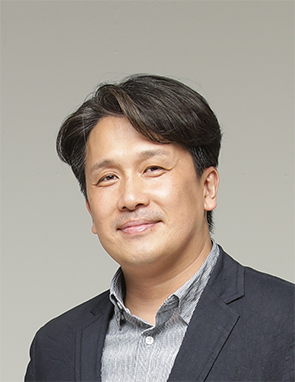
Prof. Eui-Hwan Chung (정의환)
Tel (Office): +82-2-3290-3061
Tel (Lab): +82-2-3290-3494
E-mail: ewanchung@korea.ac.kr
- Professor
- Curriculum Vitae
- Publication
- Research & Teaching
- PIPL News
- People at PIPL
-
Eui-Hwan Chung, Ph.D (정의환)
- Affiliation: Department of Plant Biotechnology (graduate: primary) / Division of Biotechnology (undergraduate)
- Office: Life Sciences & Biotechnology West bldg. Rm 321
- Laboratory: Life Sciences & Biotechnology West bldg. Rm L411 Plant Immuno-Physiology Lab. (PIPL)
- Major Research Areas: Plant Immunity / Plant Pathogen Virulence / Plant-Pathogen Interaction / Plant Immune-Priming
-
Education
-
Ph.D (2011): Molecular, Cellular, & Developmental Biology (MCDB), Dept. of Biology, University of North Carolina at Chapel Hill (UNC-Chapel Hill), NC, USA
-
B.S & M.S (2002): Plant Pathology, Korea University, Seoul, Republic of Korea
Professional Experiences-
2021.03 ~ current: Associate Professor, Department of Plant Biotechnology & Division of Biotechnology, Korea University, Seoul, Republic of Korea
-
2020.09 ~ 2021.02: Assistant Professor, Division of Biotechnology, Korea University, Seoul, Republic of Korea
-
2020.02 ~ 2020.07: Senior Scientist, Disease Trait Team, Crop Trait Discovery (CTD) Function, Syngenta Seeds, Syngenta Group, Research Triangle Park (RTP), NC, USA
-
2019.05 ~ 2020.01: Senior Scientist & Molecular Plant Pathologist, Bio-stress Trait (BT) Group, Syngenta Crop Protection, Research Triangle Park (RTP), NC, USA
-
2018.03 ~ 2019.05: Research Specialist (Permanent Position), Howard Hughes Medical Institute (HHMI), University of North Carlina at Chapel Hill, NC, USA
-
2016.03 ~ 2018.03: Research Associate, Howard Hughes Medical Institute (HHMI), University of North Carlina at Chapel Hill, NC, USA
-
2016.03 ~ 2019.05: Research Professor, Department of Biology, University of North Carolina at Chapel Hill, NC, USA
-
2011.05 ~ 2016.03: Postdoctoral Research Associate, Department of Biology, University of North Carolina at Chapel Hill, NC, USA
Professional Activities & Other Services-
Guest associate editor: Frontiers in Plant Science
-
Review editors: Frontiers in Plant Science
-
The Korean Society of Plant Pathology (KSPP): The Plant Pathology Journal (Editor) / Plant Disease Report (Editor)
-
The Korean Society of Molecular and Cellular Biology (KSMCB)
-
The Korean Society of Plant Biology (KSPB)
-
International Society of Molecular Plant-Microbe Interaction (Is-MPMI)
-
American Society of Plant Biologists (ASBP)
-
American Association for the Advancement of Science (AAAS)
-
-
- Yoo N, Kang JE, Kim DR, Lee H, Ko D, Kwak YS, Chung EH (2023) A natural cyclic peptide valinomycin enhances plant innate immunity. BioRxiv doi: 10.1101/2023.10.25.563898
- Kang J, Yoon HM, Jung J, Yu S, Choi SY, Bae HW, Cho YH, Chung EH*, Lee Y* (2023) Pleiotropic effects of N-acylhomoserine lactone synthase ExpI on virulence, competition, and transmission in Pectobacterium carotovorum subsp. carotovorum Pcc21. Pest Management Science doi: 10.1002/ps.7797 *corresponding authors
- Iakovidis M*#, Chung EH*#, Saile, SC#, Sauberzweig E, El Kasmi F*# (2023) The emerging frontier of plant immunit's core hubs. FEBS Journal 290(13): 3293-3491, State-of-the-Art Review / #equal contribution *corresponding authors
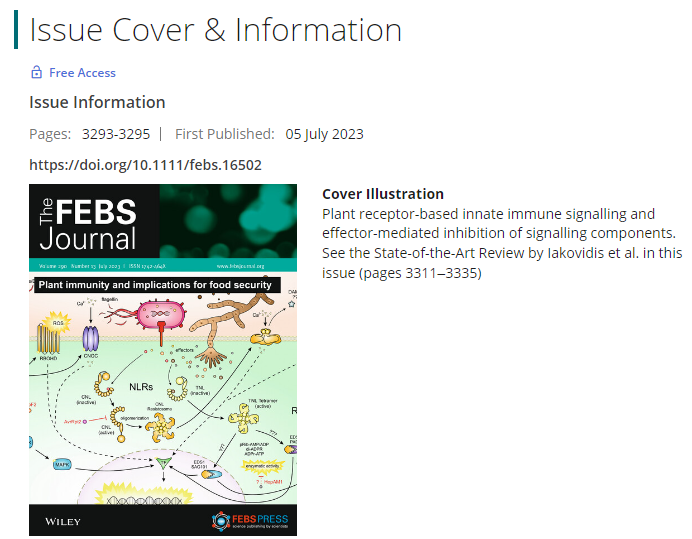
- Kim H, Ahn YJ, Lee H, Chung EH, Segonzac C, Sohn KH (2023) Diversified host target families mediate convergently evolved effector recognition across plant species. Current Opinion in Plant Biology, 74:102398 doi:10.1016/j.pbi.2023,102398
- Yu S, Kang J, Chung EH*, Lee Y* (2023) Disruption of the metC gene affects methionine biosynthesis in Pectobacterium carotovorum subsp. carotovorum Pcc21 and reduces soft-rot disease. The Plant Pathology Journal, 39(1): 62-74, doi:10.5423/PPJ.OA.09/2022.0135 *corresponding authors
- Kang JE*, Hwang S*, Yoo N, Kim BS, Chung EH (2022) A resveratrol oligomer, hopeaphenol suppresses virulence activity of Pectobacterium atrosepticum via the modulation of the master regulator, FlhDC. Front Microbiol. 10:3389.doi:10.3389/fmicb.2022.999522
- Lakovidis M*#, Chung EH*#, Salie SC#, Sauberzweig E, El Kasmi F*# (2022) The Emerging Frotiers of Plant Immunity's Core Hubs. The FEBS Journal doi: 10.1111/febs.16549 #equal contribution *corresponding authors
- Kang JE, Yoo N, Jeon BJ, Kim BS, Chung EH (2022) Resveratrol Oligomers, Plant-Produced Natural Products With Anti-virulence and Plant Immune-Priming Roles. Front Plant Sci. 13:885625. doi: 10.2289/fpls.2022.885625
* Global Plant Council Prize-Winning Research Topic
- Le QT, Truong HA, Nguyen DT, Lee YJ, Chung EH, Lee H (2022) Enhanced root growth of the Arabidopsis abi5 mutant under high salinity is associated with reduced NO levels in Arabidopsis seedlings. Research Square (Preprint) doi:org/10.21203/rs.3.rs-15511464/v1
- Choi S, Prokchorchik M. Lee H, Gupta R, Lee Y, Chung EH, Cho B, Kim MS, Kim ST, Sohn KH (2021) Direct acetylation of a conserved threonine of RIN4 by the bacterial effector HopZ5 or AvrBsT activates RPM1-dependent immunity in Arabidopsis. Mol Plant. 27:S1674-2052(21)0035-1
- Truong HA, Lee S, Trinh CS, Lee WJ, Chung EH, Hong SW, Lee H (2021) Overexpression of the HDA15 Gene Confers Resistance to Salt Stress by the Induction of NCED3, an ABA Biosynthesis Enzyme. Front Plant Sci. 30(12):640443
<Before KU>
- Prokchorchik M, Choi S, Chung EH, Won K, Dangl JL, Sohn KH (2020) A host target of a bacterial cysteine protease virulence effector plays a key role in convergent evolution of plant innate immune system receptors. New Phytol. 225(3): 1327-1342
- Redditt TJ*, Chung EH*, Karimi HZ*, Rodibaugh N, Zhang Y, Trinidad J, Kim JH, Zhou Q, Dangl JL, Mackey D, and Innes RW (2019) AvrRpm1 Functions as an ADP-Ribosyl Transferase to Modify NOI Domain-Containing Proteins, Including Arabidopsis and Soybean RPM1-Interacting Protein 4, The Plant Cell 31(11):2664-2681 *Equal contribution
- Wan L, Essuman K, Anderson RG, Sasaki Y, Monteiro F, Chung EH, Osborne Nishimura E, DiAntonio A, Milbrandt J, Dangl JL, and Nishimura MT (2019) TIR domains of plant immune receptors are NAD+-cleaving enzymes that promote cell death, Science Aug 23;365(6455):799-803
- Essuman K, Wan L, Summers, DW, Anderson RG, Sasaki Y, Mao X, Yim KY, Monteiro F, Chung EH, Osborne-Nishimura E, Dangl JL, Nishimura MT, DiAntonio A, and Milbrandt J (2019) Redefining the TIR domain: From Axon Degeneration to Innate Immunity and Beyond, The Journal of Immunology 202(1):64.1-64.1
- O’Neill EM, Mucyn TS, Patteson JB, Finkel OM, Chung EH, Baccile JA, Massolo E, Schroeder FC, Dangl JL, and Li B (2018) A New Bacterial Small Molecule Suppresses Plant Immune Response, Proc. Natl. Acad. Sci USA 115(41):E9514-E9522
- El-Kasmi F*, Chung EH*, Anderson RG, Li J, Wan Li, Eitas TK, Gao Z and Dangl JL (2017) Signaling from the plasma –membrane localized plant immune receptor RPM1 requires self-association of the full-length protein, Proc. Natl. Acad. Sci USA 114(35):E7385-E7394 *Equal contribution
- Tran DTN*, Chung EH*, Demar M, Schwab R, Dangl JL, Weigel D, Chae E (2017) Activation of a plant NLR through heteromeric association with an autoimmune risk variant of another NLR, Current Biology 27, 1148-1160 *Equal contribution
- Nishimura MT, Anderson RG, Cherkis KA, Law TF, Liu Q, Machius M, Nimchuk Z, Yang L, Chung EH, El-Kasmi F, Nishimura EO, Sondek J and Dangl JL (2017) RBA1, a TIR-only innate immune receptor, requires diverse self-association interfaces for function, Proc. Natl. Acad. Sci USA E2053–E2062, doi:10.1073/pnas.1620973114
- Lee IH, Lee IC, Kim J, Kim JH, Chung EH, Kim HJ, Park SJ, Kim YM, Kang SK, Nam HG, Woo HR, and Lim PO (2016) NORE1/SAUL1 integrates temperature dependent defense programs involving SGT1b and PAD4 pathways and leaf senescence in Arabidopsis, Physiologia Plantarum, doi: 10:1111/ppl. 12434
- Chung EH, El-Kasmi F, He Y, Loher A and Dangl JL (2014) A Plant Phosphoswitch Platform Repeatedly Targeted by Type III Effector Proteins Regulates the Output of Both Tiers of Plant Immune Receptors, Cell Host & Microbe, doi.org/10.1016/j.chom.2014.09.004
- Huang HS, Yoon BJ, Brooks S, Bakal R, Larsen RS, Wallace ML, Han JE, Chung EH, Zylka MJ, and Philpot B (2014) Snx14 regulates neuronal excitability, promotes synaptic transmission, and is imprinted in the brain of mice. PLoS ONE, 9(5):e98383. doi: 10.1371/journal.pone.0098383
- Kim NH, Kim DS, Chung EH, and Hwang BK (2014) Pepper suppressor of the G2 allele of skp1 interacts with the receptor-like cytoplasmic kinase 1 and type III effector AvrBsT and promotes the hypersensitive cell death response in a phosphorylation-dependent manner. Plant Physiology 165:76-91
- He Y*, Chung EH*, Hubert DA, Tornero P, and Dangl JL (2012) Specific missense alleles of the Arabidopsis Jasmonic Acid co-receptor COI1 regulate innate immune receptor accumulation and function. PLoS Genetics 8(10): e1003018. doi:10.1371/journal.pgen.1003018 *Equal contribution
- Cherkis KA, Temple B, Chung EH, Sondek J and Dangl JL (2012) AvrRpm1 missense mutations weakly activate RPS2-mediated immune response in Arabidopsis thaliana. PLoS ONE 7(8): e42633. doi:10.1371/journal.pone.0042633
- Gao, Z, Chung EH, Eitas TK, and Dangl JL (2011) The plant intracellular innate immune receptor RPM1 is activated at, and functions on, the plasma membrane. Proc. Natl. Acad. Sci USA. 108 (18), 7619-7624
- Chung EH. (2011) Mechanisms of Plant Immune Receptor RPM1 and its Associated Proteins in Disease Resistance, University of North Carolina at Chapel Hill, NC, USA (Ph.D. Dissertation)
- Chung EH, da Cunha L, Wu A, Gao Z, Afzal A.J, Mackey D and Dangl JL (2011) Specific threonine phosphorylation of a host target mediated by two unrelated type III effector proteins results in activation of a host innate immune receptor in plants. Cell Host & Microbe 9(2): 125-136
- Jung EH, Jung HW, Lee SC, Han SW, Heu S, and Hwang BK (2004) Identification of a novel pathogen-induced gene encoding a leucine-rich repeat protein expressed in phloem cells of Capsicum annuum. Biochim. Biophys. Acta 1676(3): 211-22
- Kim YJ, Jung EH, Hwang SH, Go SJ, and Hwang DJ (2004) AP2/EREBP transcription factors in Rice. The Plant Pathology Journal 20(1): 41-45
- Jung EH. (2002) Identification and Functional Analysis of a Novel Gene Encoding Leucine-Rich Repeat (LRR) protein as a Molecular Marker for Microbial Perception in Capsicum annuum, Korea University, Seoul, Korea (M.S. Thesis)
-
<RESEARCH>Highlights
-
Hanbitsa in BRIC (Research articles & highly cited research article): https://www.ibric.org/myboard/read.php?Board=hbs_treatise&id=24084&ttype=1&idauthorid=15945
-
KU Knowledge (쿠날): https://www.youtube.com/watch?v=BNvtvpsQnew
Research Topics-
I. How do plants regulate the first immunity (PAMPs -triggered immunity), and what are genetic requirements for this process?
-
II. How do plant pathogens suppress the first layer of plant immune responses for successful colonization and infection?
-
III. How do plants recognize pathogen infection and activate the second immunity (Effector-triggered immunity)?
-
IV. Natural products for pathogen virulence suppression and plant immune priming
-
V. Plant-Pathogen-Environment Interaction
OverviewPlants defend against pathogen infection by both passive and active immune mechanisms. During co-evolution, pathogens that confront the plant’s defenses modify host signaling components for successful colonization. Plants can subsequently monitor pathogen-driven changes and activate additional immune responses. The plant innate immunity consists of two tiers for governing the recognition of pathogens. The first layer is mediated by cell-surface receptors that perceive evolutionarily conserved pathogen (or microbe)-associated molecular patterns (PAMPs/MAMPs). These are typically LRR-kinases and LysM-kinases that can turn on immune responses, lead to transcriptional re-programing, and generate anti-microbial compounds. This immune response is PAMPs (MAMPs)-triggered immunity or PTI (MTI).Pathogens have evolved mechanisms that overcome PTI and induce disease in host plants. They deploy a series of virulence factors known as effector proteins to dampen the PTI response by targeting host proteins participating in key immune signaling pathways. To monitor the mode of function or structure of pathogen effector proteins and activate efficient defense responses in host cells, plants have evolved nucleotide binding leucine-rich repeat (NLR) proteins that initiate the second layer of immunity, effector-triggered immunity or ETI.The current and long-term research objective in PIPL is to (i) provide a mechanistic understanding of the function of pathogen-secreted effector proteins that suppress the plant immune response and (ii) determine unique and common mechanisms that exclude pathogens through the deployment of both PTI (MTI) and ETI responses in plants. This research program is expected to contribute to dissection of the complex relationships that exist between host and their pathogens. Furthermore, the triangular interaction of Plant-Pathogen-Environment will be investigated to determine key environmental factors that influence on Plant-Pathogen Interplay and to suggest putative tools for sustainable plant health in nature.Arms Race between Plant-Pathogen Interplay: Topic I & III
(Arms for Plants: Two-layered Plant Innate Immunity)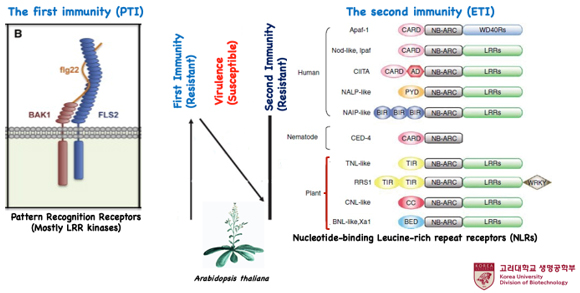 Arms Race between Plant-Pathogen Interplay: Topic II
Arms Race between Plant-Pathogen Interplay: Topic II
(Arms for Pathogens: virulence / effector proteins)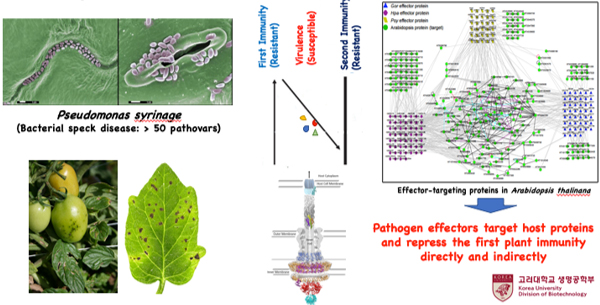 Natural products/metabolites & plant immunity: Topic IV(Supression of pathogen virulence & enhancement of plant immune priming)
Natural products/metabolites & plant immunity: Topic IV(Supression of pathogen virulence & enhancement of plant immune priming) AND BEYOND: Topic V
AND BEYOND: Topic V
(Plant-Pathogen-Environment)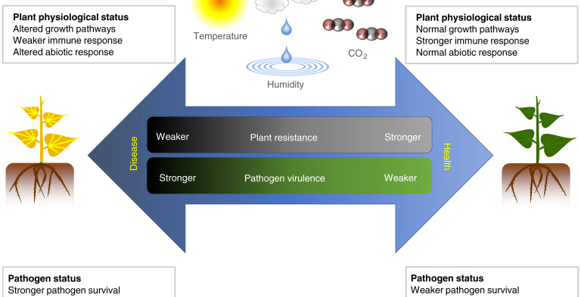
<TEACHING>
- Graduate courses: Department of Plant Biotechnology
- Advanced Molecular Plant Immuno-Physiology
- Plant-Pathogen Interaction
- Advanced Plant Bacteriology
- Plant Disease Resistance
- Molecular & Physiological Plant Pathology
- Seminar in Plant Biotechnology I
- Seminar in Plant Biotechnology II
- - Graduate courses: Department of Horticulture & Biotechnology
- Horticultural Plant Disease
- Plant Pathology
- Undergraduate courses: Division of Biotechnology
Introduction of Plant Medicine (Best lecture award 2022 spring / Lecture award 2021 spring, 2023 spring)
Plant Virology (Lecture award 2020 fall)
Plant Bacteriology & Lab
General Biology & Practice (Plant section)
Basic Experiment in Biotechnology (Plant Biotechnology-related section)
-
-
<OPEN LAB DAY>
supported by BK21 FOUR program! We are open for you all!!!
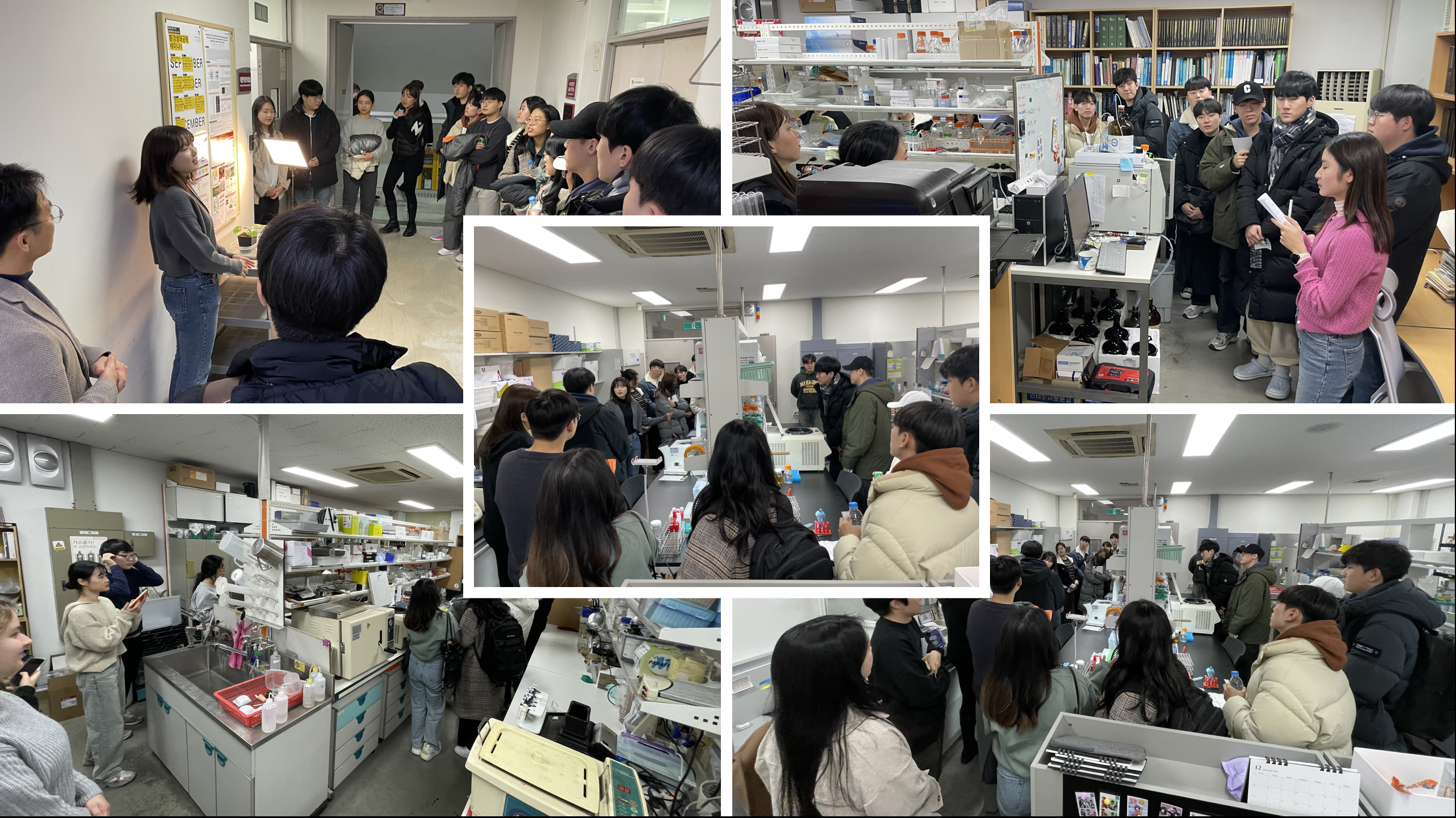
<2023 Korean Society of Plant Pathology (KSPP) fall international conference>
One lab, two locations (KU-PIPL & GNU-PIL)!!! Phonenix, Jeju

<The 33rd International Conference on Arabidopsis Research>
The first lab participation in the international conference abroad, ICAR2023, Chiba, Japan!

<2023.05.24: Nayeon's Master Thesis Defense>
She's DONE! Not yet DONE?! She will join PIPL as a Ph.D student! Contrats!!!

<2023 Korean Society of Plant Pathology (KSPP) spring conference>
with Profs. Kee Hoon Sohn (SNU), Sang Hee Kim (GNU), Hyong Woo Choi (ANU), and lab members

<2023 Spring PIPL>
Welcome Harin and farewell to Ji Eun!!!

<2022 Winter>
Joint Christmas party with KUCEP (Prof. Jongyun Kim) and KU lab (Prof. Kang Mo Ku)
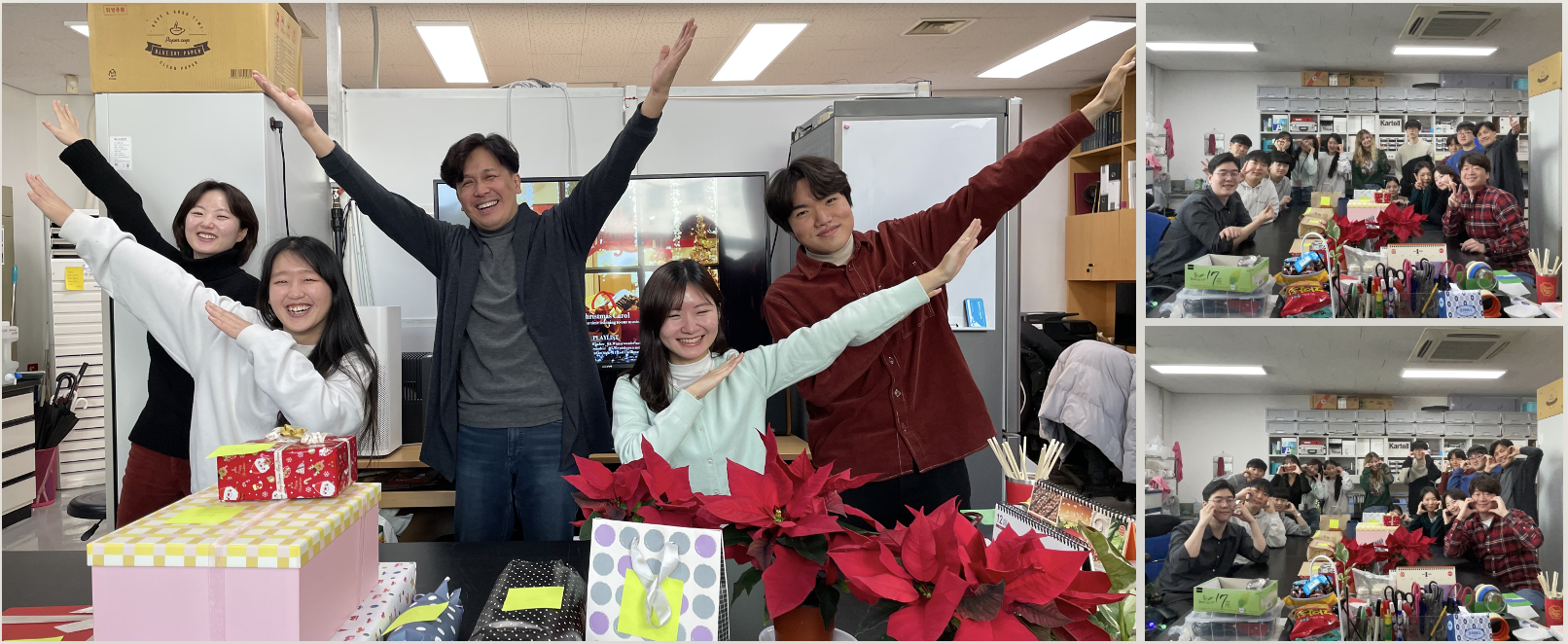
<2022 Fall>
Fall mountain hiking with PIPL and friends.

<2022 Spring>
PIPL spring mountain hiking

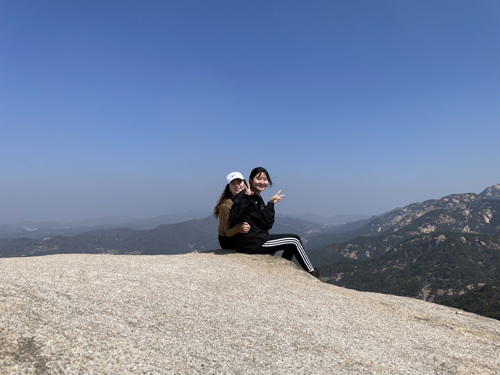
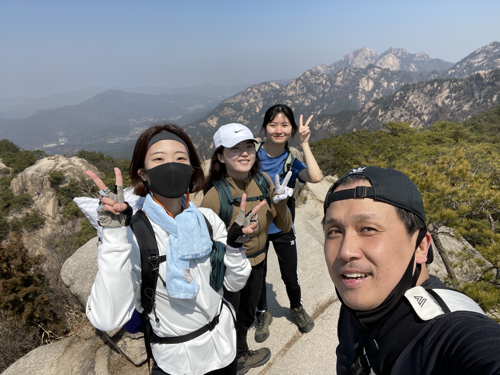

<2021 Winter>
Joint Christmas party with KUCEP (Prof. Jongyun Kim)

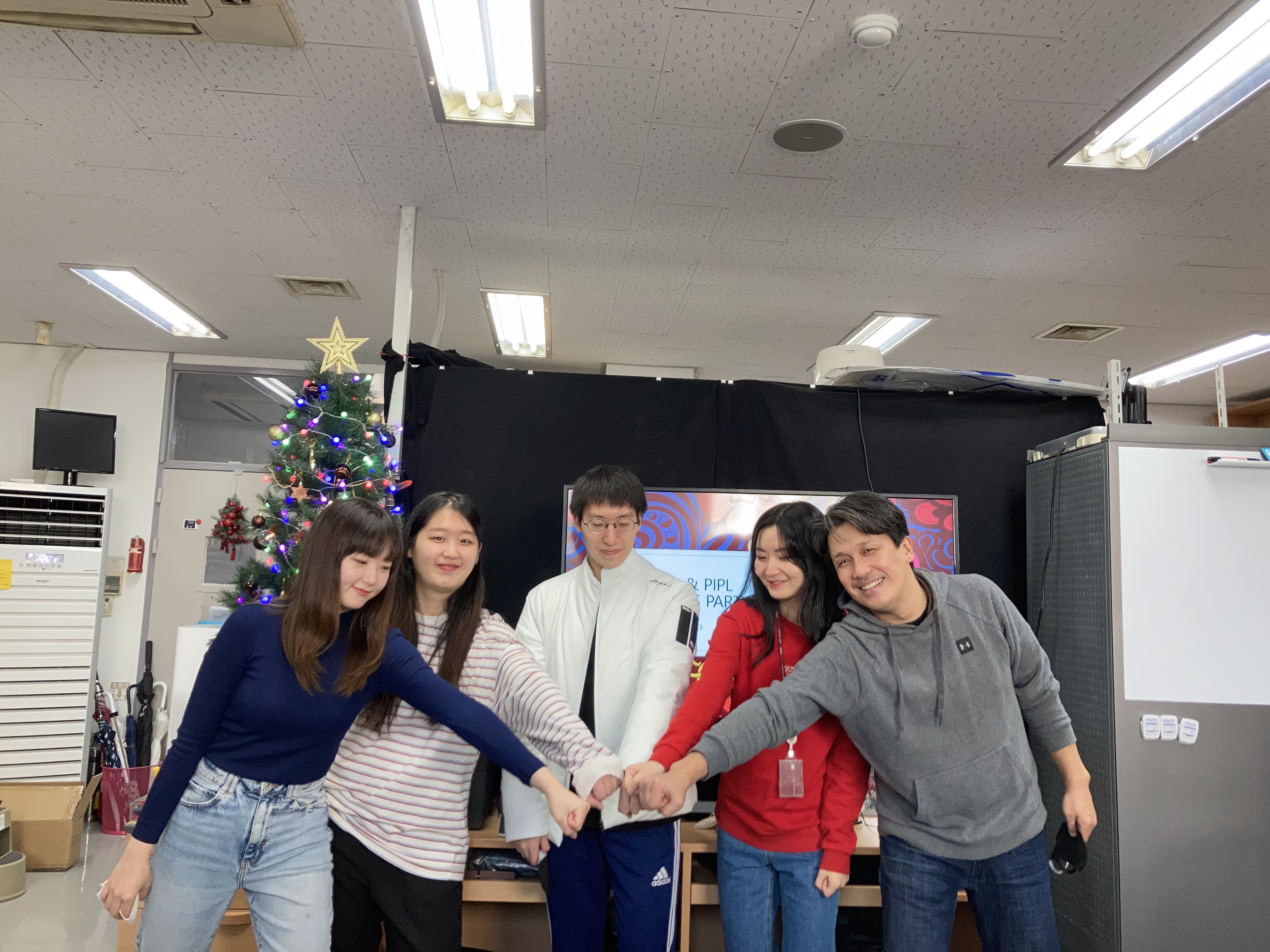
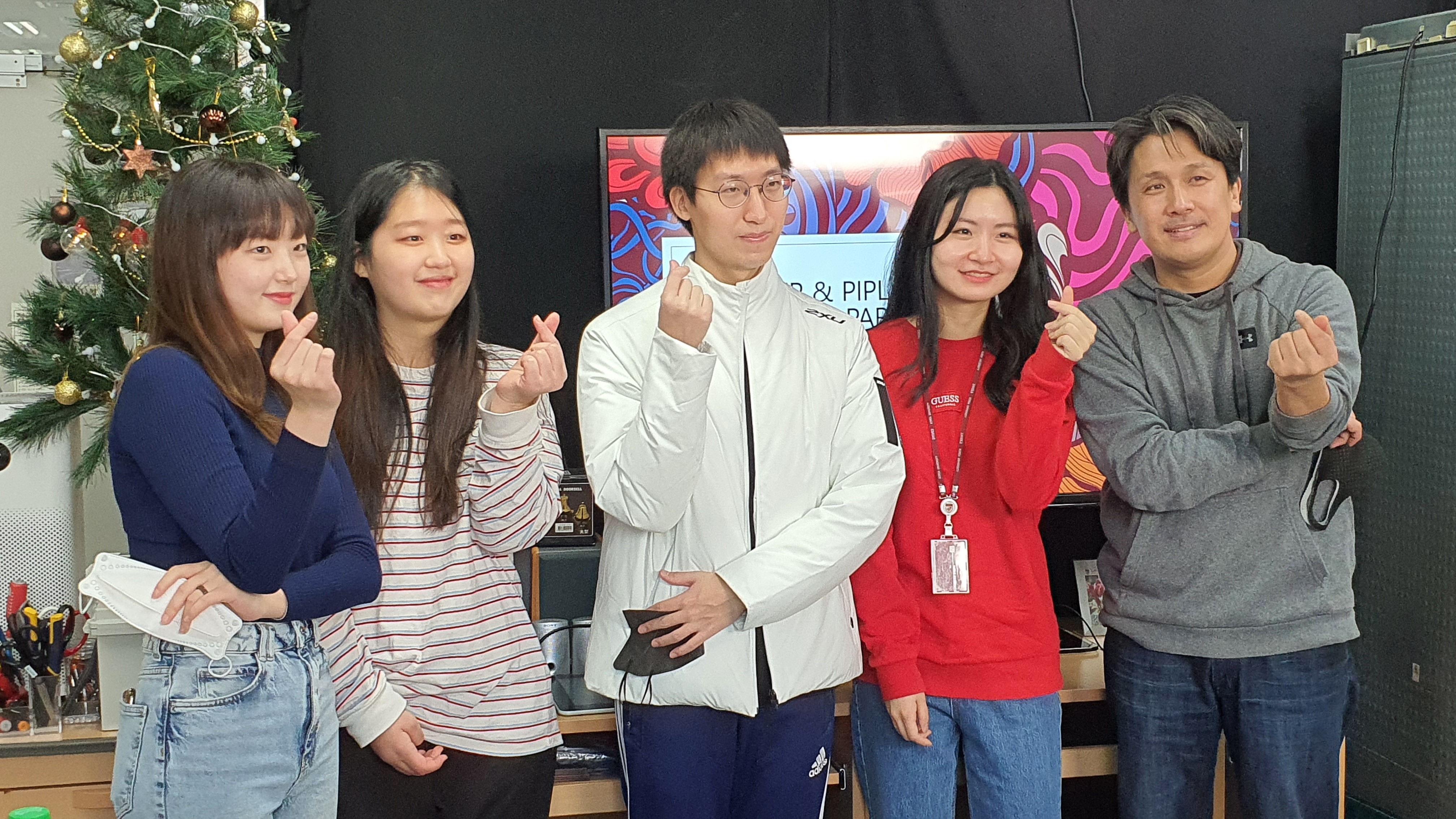
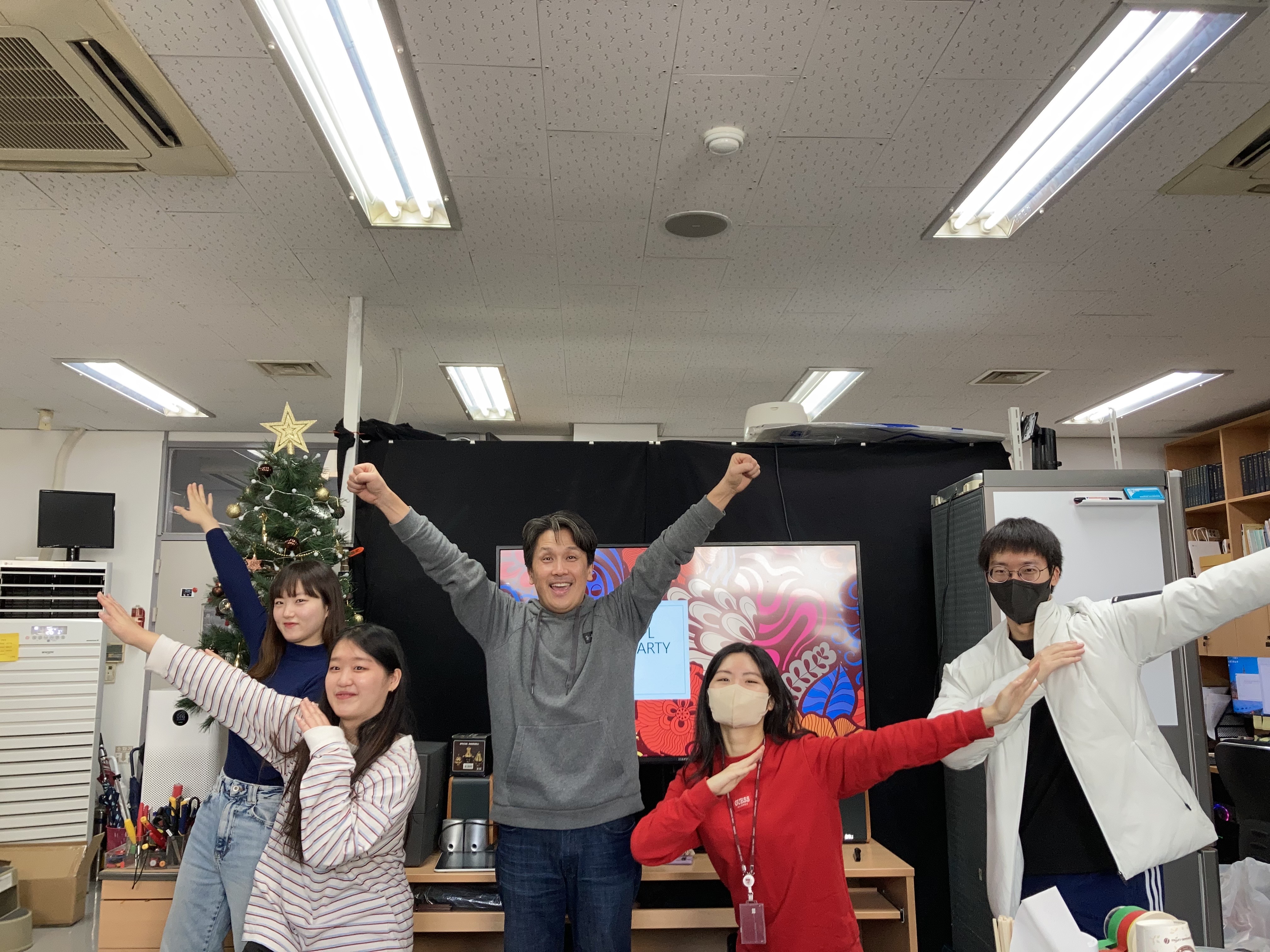
<2021 Fall>
First PIPL picture and mountain hiking.
-
- <Current PIPL>
- Eui-Hwan CHUNG, Ph.D (PI: ewanchung@korea.ac.kr)
-
 - Current Topic: BOTHERING PIPL!
- Current Topic: BOTHERING PIPL! - Nayeon YOO, M.Sc (Ph.D course: nayeon981127@korea.ac.kr)
-
 - Current Topic: Plant Immune Priming & Systemic Immunity
- Current Topic: Plant Immune Priming & Systemic Immunity - Huiwon LEE, B.Sc (Ph.D-Master course: sdds987@korea.ac.kr)
-
 - Current Topic: Plant NLR receptor function & Plant Innate Immuniy
- Current Topic: Plant NLR receptor function & Plant Innate Immuniy - Dohee KO, B.Sc (Ph.D-Master course: rosa1210@korea.ac.kr)
-
 - Current Topic: Plant RLCKs/NOI protein fuction & Plant Innate Immunity
- Current Topic: Plant RLCKs/NOI protein fuction & Plant Innate Immunity - Harin KIM, B.Sc (Master course: hrk2445@korea.ac.kr)
-
 - Current Topic: Pathogen Virulence & Plant Innate Immunity
- Current Topic: Pathogen Virulence & Plant Innate Immunity - Sumin KIM, B.Sc (Master course: ksm1ksy2@korea.ac.kr)
-
 - Current Topic: Natural Products & Plant Systemic Immunity
- Current Topic: Natural Products & Plant Systemic Immunity
<PIPL Family>
Nayeon YOO, M.Sc (Master course 2021.09-2023.08: current Ph.D course at PIPL)
Jieun KANG, Ph.D (Research Professor 2021.03-2023.02: currently at Boyce Thompson Institute (BTI) at Cornell U. https://btiscience.org/aleksandra-skirycz/)
Byeong Jun JEON, Ph.D (Honorary PIPL member / Plant Pharmacology Lab: 2022-2021, currently at KIST)
- Donghyun KWAK (Undergraduate intern: 2021 winter, currently at LG-Chem)
- Changsoon KIM (Undergraduate intern:2021 winter, currently at LG-Chem)
- Juhyung HA (Undergraduate intern: 2021 winter)
- Junsung PARK (Undergraduate intern: 2021 summer, currently at Samsung BIOEPIS)
- Sungyong KIM (Undergraduate intern: 2022 winter)
- Hyunjin KWON (Undergraduate intern: 2023 winter)
- Kangtoe LEE (Undergraduate intern: 2023 summer)
- Sungjoon KIM (Undergraduate intern: 2022 PIPL & Lab of Plant Pharmacology)
- Jihee MOON (Undergraduate intern: 2023 fall semester)
-
We always welcome new PEOPLE at PIPL (Plant Immuno-Physiology Lab)!!!
